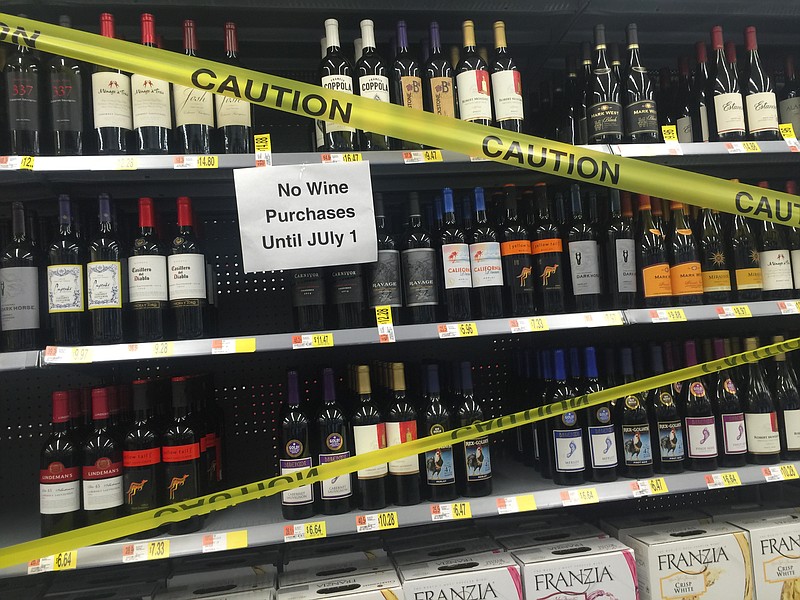If the competing factions of grocery and liquor stores can compromise on a Tennessee bill that allows both to sell alcohol on Sundays, hope lives that opposing sides in Washington, D.C., might compromise on much more important issues such as health care and gun sales.
Until a 2014 bill, both grocery and liquor stores were on opposite sides of the issue and had been for seven years of legislative debate. Grocery stores wanted to sell wine, and liquor stores didn't want them to. Critics said grocery store sales would make it easier for minors to buy alcohol and would drive liquor retailers out of business. Supporters said 37 other states sold wine in grocery stores and argued the Volunteer State was losing out on tax revenue by not doing so.
The compromise bill allowed grocery stores to sell wine and allowed liquor stores to sell a variety of other products they previously could not sell. It also left the final decision to voters in municipalities, who in Hamilton County approved the measure by anywhere from a more than 4-to-1 margin (Signal Mountain) to 147 votes (Collegedale). It also didn't go into effect for another year and eight months.
Now the debate has moved to Sunday alcohol sales, which are currently banned with the exception of beer. Grocery stores want to be able to sell wine, while liquor retailers are mixed in even wanting to be open on Sunday.
The bill by state Rep. Gerald McCormick, R-Chattanooga, and amended by Rep. Bill Sanderson, R-Kenton, would allow grocery stores to sell wine on Sundays, beginning Jan. 1, 2019, at the same time as beer sales are currently permitted. Liquor retailers would be able to open on Sundays and sell wine and liquor, and would be given a six-month head start, beginning July 1 of this year.
Other tenets of the bill would require package stores to sell liquor at least 20 percent over their wholesale price (because cheaper, more available alcohol is not thought to be in the public's best interest and so it won't be used by retailers as a loss leader) and would give package store owners more freedom about liquidating their inventory if they went out of business. Not yet a part of the bill but in discussion is the ability for liquor retailers to sell their licenses to someone else.
McCormick, in response to another legislator, said something about the compromise bill- that passed the House State Government Subcommittee Wednesday - that partisans in Washington might take to heart.
"I don't think [the issues are] just two sides of a fence," he said. "I think it's a number of fences with different sides on it."
If Congress looked at issues differently from "we're right and they're wrong," more might be accomplished.
